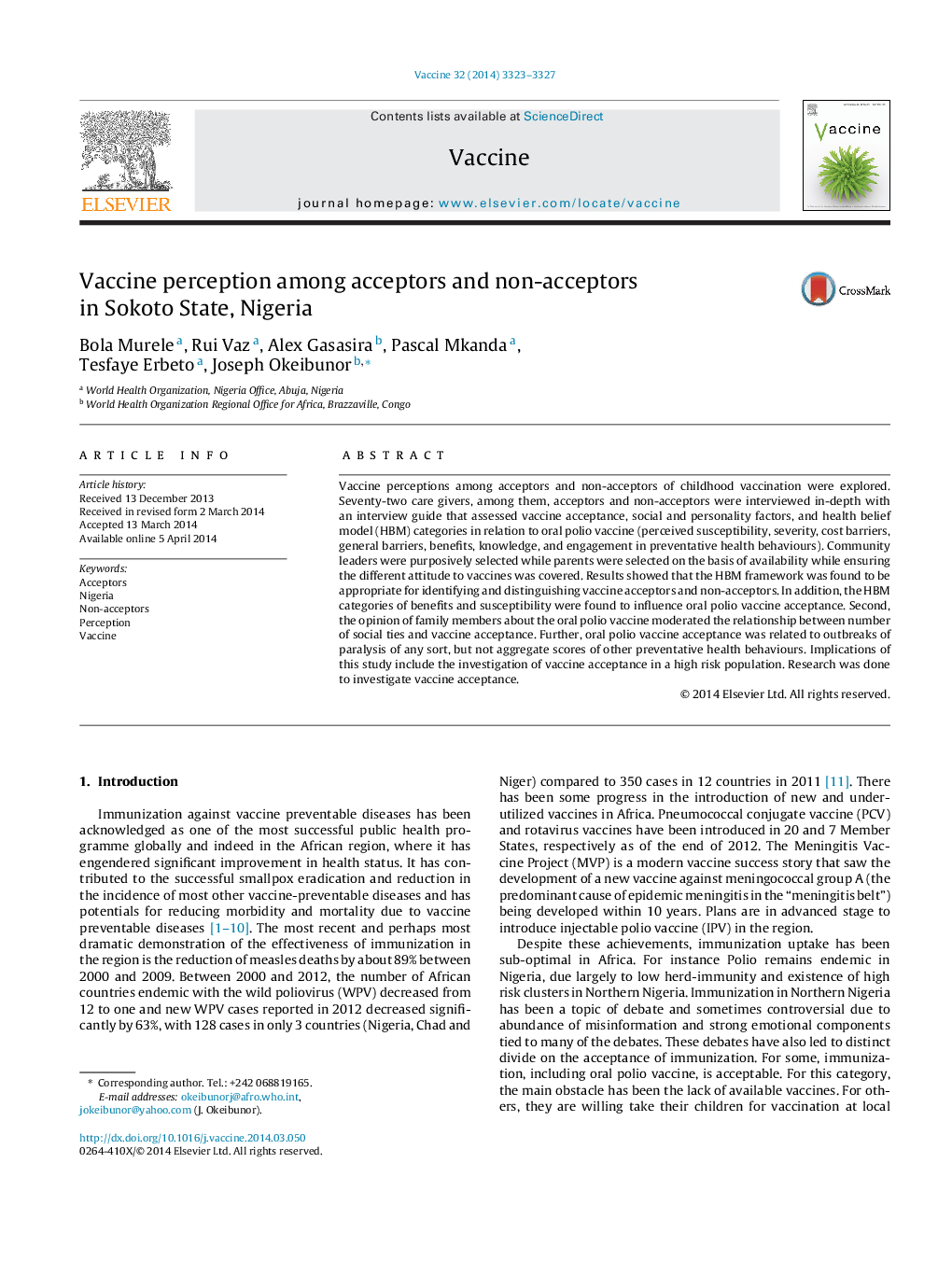| Article ID | Journal | Published Year | Pages | File Type |
|---|---|---|---|---|
| 10965040 | Vaccine | 2014 | 5 Pages |
Abstract
Vaccine perceptions among acceptors and non-acceptors of childhood vaccination were explored. Seventy-two care givers, among them, acceptors and non-acceptors were interviewed in-depth with an interview guide that assessed vaccine acceptance, social and personality factors, and health belief model (HBM) categories in relation to oral polio vaccine (perceived susceptibility, severity, cost barriers, general barriers, benefits, knowledge, and engagement in preventative health behaviours). Community leaders were purposively selected while parents were selected on the basis of availability while ensuring the different attitude to vaccines was covered. Results showed that the HBM framework was found to be appropriate for identifying and distinguishing vaccine acceptors and non-acceptors. In addition, the HBM categories of benefits and susceptibility were found to influence oral polio vaccine acceptance. Second, the opinion of family members about the oral polio vaccine moderated the relationship between number of social ties and vaccine acceptance. Further, oral polio vaccine acceptance was related to outbreaks of paralysis of any sort, but not aggregate scores of other preventative health behaviours. Implications of this study include the investigation of vaccine acceptance in a high risk population. Research was done to investigate vaccine acceptance.
Keywords
Related Topics
Life Sciences
Immunology and Microbiology
Immunology
Authors
Bola Murele, Rui Vaz, Alex Gasasira, Pascal Mkanda, Tesfaye Erbeto, Joseph Okeibunor,
